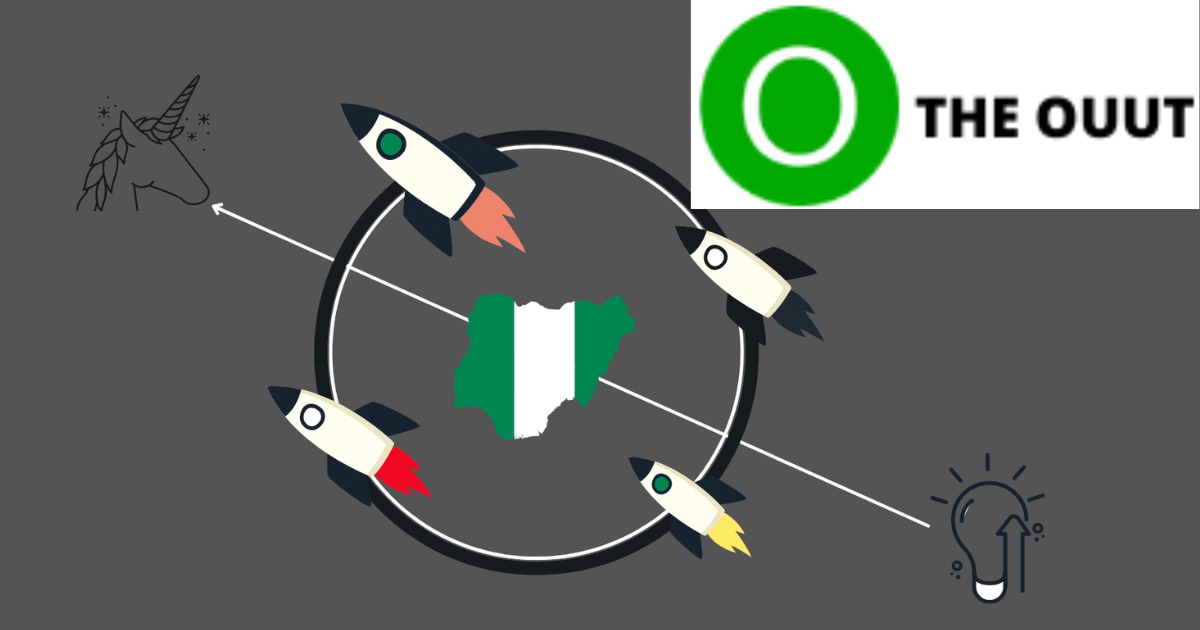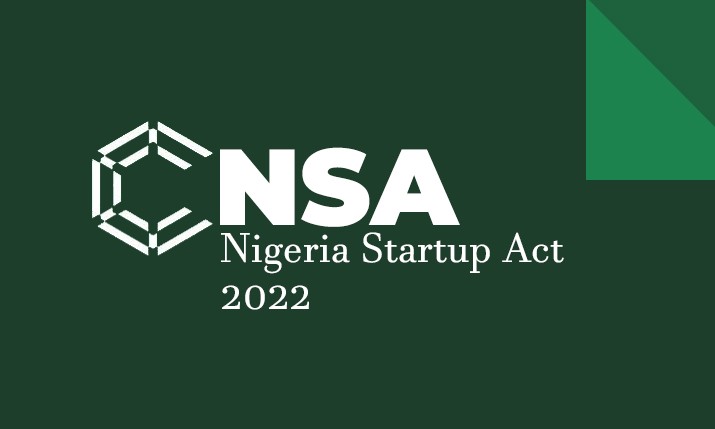How the “NSA 2022” can restore Investors’ Confidence as Tech Startups pull out of Nigeria

The much-anticipated Nigerian Startup Act “NSA 2022” a federal piece of legislation introduced in March 2019 by the Nigerian Senate was finally signed into law by His Excellency, President Muhammadu Buhari, GCFR on October 19, 2022, to support the development of tech startups in Nigeria. The Act identifies the key areas where startups require assistance and proposes solutions. Among the many promises made by the new law to the Nigerian tech ecosystem in particular and Africa, in general, is that federal laws and regulations will be clear, planned, and designed to benefit the industry. Its specific goal is to provide a legal and institutional framework for startup development in Nigeria, as well as an enabling environment for its operation, with the goal of positioning the Nigerian startup ecosystem as the leading digital hub in Africa and fostering the development of technology-related talent in the country.
The law has been welcomed by Nigeria’s startup community because it addresses some of the major concerns that have caused many startups to leave the country in recent years. One of the main concerns of Nigerian startups is the lack of a clear regulatory framework. The Nigerian Startup Act addresses this by establishing a clear legal framework within which startups can operate.
The Act is divided into ten (10) sections that address four (4) key issues confronting technology entrepreneurs: capital, regulations, infrastructure, and talent. Importantly, the Act avoids the issue of applicability and coverage by clearly defining the requirements for startup registration, licensing, or labeling to benefit from the stipulated broad-reaching incentives. Furthermore, the Act includes specific provisions aimed at reforming identified onerous legal, regulatory, tax and administrative bottlenecks that have hampered startup operations in Nigeria.
Also Read: Nigerian, President, Muhammadu Buhari Signs Startup Bill To Law
What the NSA 2022 is adding to the tech ecosystem
The NSA also establishes a startup registry, which will serve as a platform for startups to register their businesses and obtain the necessary licenses and permits.
Another major issue for startups is a lack of funding. The Nigerian Startup Act aims to address this by establishing a startup fund that will provide startup funding. The bill also creates a venture capital fund to provide venture capitalists with the resources they need to invest in Nigerian startups.
The Nigerian startup community is also concerned about a scarcity of skilled workers. The Nigerian Startup Act aims to address this by establishing a startup academy that will provide startups with training and mentorship. The bill also establishes a startup incubation program to provide startups with the resources they need to grow their businesses.
The Nigerian Startup Act, NSA 2022 establishes accelerator/incubator programs that provide early-stage opportunities to entrepreneurs and founders. Founders receive assistance, mentorship, and strategic advice to accelerate growth and increase their chances of receiving funding. This will improve talent and build communities for aspiring tech operators to engage and deliver solutions to unmet needs, thereby creating demand and a market for made-in-Nigeria solutions.
Also, the Act goes a step further by instituting training programs and promoting public-private partnerships for the creation of talent hubs that generate and support startups. Additionally, capital and talent will become more distributed as the ecosystem matures and innovation spreads.

Tech Startups Leaving Nigeria
Although the new law encourages investment into the Nigerian tech ecosystem, strengthens existing businesses, improves the Nigerian business and economic landscape, and provides a significant boost to the Federal Government’s Ease-of-Doing-Business campaign, there has been a troubling trend of startups leaving Nigeria for a variety of reasons in recent times. The latest is Safeboda, an east African company, which recently announced its exit from the Nigerian market because the okada (a local term for motorcycle taxis) industry “in its current state is not economically viable and unfortunately requires significant investment at this challenging time in the global economic landscape.”
This comes just a week after SweepSouth, South Africa’s online home cleaning service, announced it was ceasing operations in Nigeria, a decision the company described as “very difficult” in a statement shared on its Twitter page. The company stated that it cannot operate sustainably due to economic pressures, as the home service industry has been hard hit by the unfavorable global macroeconomic environment.
Also Read: SafeBoda loses about 170 million customers in Nigeria
How the NSA can restore investors’ confidence in the ecosystem
Although many will wonder why startups are leaving Nigeria barely a month after what was supposed to be the master plan for the Nigerian tech ecosystem was introduced. If you look at the reasons given by SafeBoda and SweepSouth for leaving the country, you’ll notice that it’s more about profitability than a lack of an enabling environment. These startups expanded into the Nigerian market with the hope of having a bite of the cake of the Nigerian teaming population can afford but unfortunately, due to high inflation and several economic hardships in the country in recent years, only a tiny fraction of its about 220 million population can afford most of the products and services offered by these startups.
Although legislation is required to put in place those other factors that impede the ease of doing business in the country, and as beautiful as this law may appear, the country isn’t lacking in beautiful policies or enabling laws, but rather in diligent implementation. As a result, the federal government must follow through on creating the necessary environment to attract much-needed investment, not only for start-up companies but also for the development of the infrastructure needed for businesses to grow and thrive. A clear implementation of the Startup Act, including tax and fiscal incentives for investors and accelerators, would attract more funds from both domestic and international investors, benefiting the economy.
The Nigerian Startup Act is a positive step for the Nigerian startup community. The law addresses startup concerns and provides resources to help them grow their businesses. Even as the global economic downturn continues to bite harder, the Act is a welcome development that will go a long way toward assuaging the fears of startups in Nigeria’s tech ecosystem and prospective investors.
